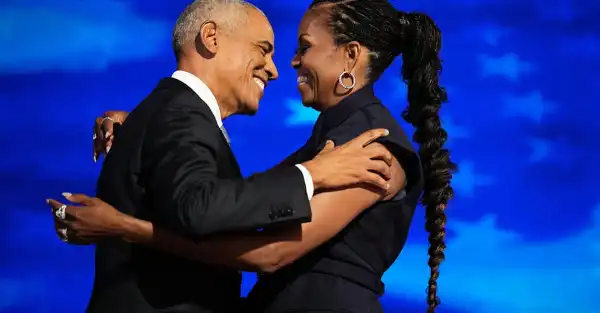
South Korea's Constitutional Court is poised to rule on whether to remove or reinstate impeached conservative President Yoon Seok-yeol.
A decision expected on Friday will determine his political fate, but it does not mean the unrest caused by Mr. Yun's brief imposition of martial law is over.
Over the past few months, millions of South Koreans have taken to the streets to protest for or against Mr. Yoon.

Rival politicians shaved their heads, went on hunger strike and filed multiple lawsuits against each other.
Whatever the verdict, divisions within the country are likely to deepen.
This will complicate South Korea's efforts to counter US President Donald Trump's “America First” foreign policy platform and North Korea's growing military cooperation with Russia.
“Whether Yoon’s impeachment is upheld or overturned by the Constitutional Court, it will be difficult to get both sides to accept his decision,” said Hong Seong-gul, a professor of public administration at Kookmin University in Seoul.
“There is a high probability that more chaos will follow.”
Here's what to expect from the court's upcoming verdict on the Dec. 3 martial law decree, which is a test for South Korea's democracy.
– What can the court do?
Mr Yun's political fate has been in the hands of the Constitutional Court since the liberal opposition-controlled National Assembly impeached him on December 14.
If the court rules against Mr. Yun, he will be formally removed from office and a national election for his successor will be held within two months.
If the court rules in Mr. Yun's favor, he will immediately return to his presidential duties.

At the heart of the case is Mr Yun's motivation to send hundreds of troops and police into parliament after martial law was declared.
Mr. Yun said he wanted to maintain order, but some senior military and police officials said Mr. Yun ordered them to recall lawmakers to block the assembly vote on his order.
Mr. Yun's martial law lasted only six hours as lawmakers managed to show up and vote against his order.
There was no violence or arrests of politicians.
Mr Yun said his martial law order was intended to draw public attention to the “wickedness” of the main liberal opposition Democratic Party, which had thwarted his plans and impeached some of his top officials.
In his impeachment petition, he alleges that Mr. Yun violated the Constitution and other laws by suppressing public gatherings, attempting to detain politicians and undermining peace across the country.
– What consequences are expected?
Mr. Yun's removal from office would trigger mass protests by his supporters, while his reinstatement would reignite the liberal mass demonstrations that have been ebbing since Mr. Yun's impeachment.
The court's rejection of the impeachment of the leader who orchestrated “arbitrary rule” will raise fundamental questions about the country's political and democratic systems, says Paik Uyel, a professor at Seoul's Yonsei University.
“There will be a lot of confusion,” Mr Pike said.

Kim Tae-hyun, a professor of political science at Soongsil University in Seoul, said the rejection of Mr. Yoon's impeachment could set a precedent for future leaders to impose martial law to resolve political deadlocks.
During the court hearing, Mr. Yun said that if he is allowed to return to work, he will focus on revising the constitution and other reform steps to create better governance and election systems.
After completing these tasks, Mr. Yun suggested that he would leave office early before the end of his single five-year term in 2027.
Professor Mr Hong said that if Mr Yun kept his promise, it could help overcome the current crisis.
However, political commentator Kim Soo-min said Yoon would likely not regain his previous level of presidential powers and the opposition would push him further into a corner even if the Constitutional Court reinstates his presidential powers.
Protests in support of Mr. Yoon turned violent in January when protesters stormed the Seoul Western District Court after it approved an official arrest warrant for Mr. Yoon.
Protesters attacked police officers using bricks, steel pipes and other objects.
As a result of the attack, 17 police officers were injured.
– What about Mr. Yun's trial for rebellion?
In addition to the impeachment case, Mr. Yun faces a separate criminal trial for alleged sedition over his martial law decree.

If found guilty, he could face the death penalty or life imprisonment.
The Constitutional Court's approval of Mr. Yun's impeachment could increase the chances of his conviction for sedition.
But a rejection would mean the Constitutional Court found Mr Yun's martial law decree not serious enough to justify the dismissal, or perhaps not even illegal.
Many experts say it will be difficult for prosecutors to raise the issue of Mr. Yun's alleged rebellion in a criminal trial later.
Commentator Kim said Mr Yoon would likely be found guilty in a criminal trial even if his impeachment was overturned.
Prosecutors charged Mr. Yun only with sedition because he has presidential immunity from most other criminal prosecutions.
Some may wonder whether his prosecution should continue if his impeachment is overturned by the Constitutional Court.
Sourse: breakingnews.ie



